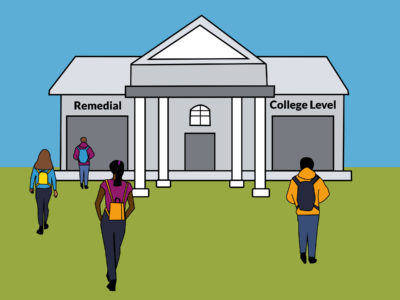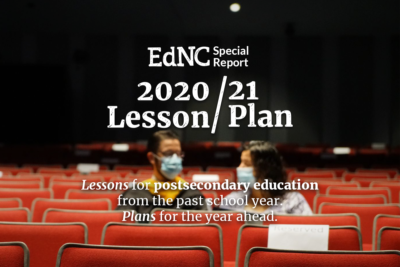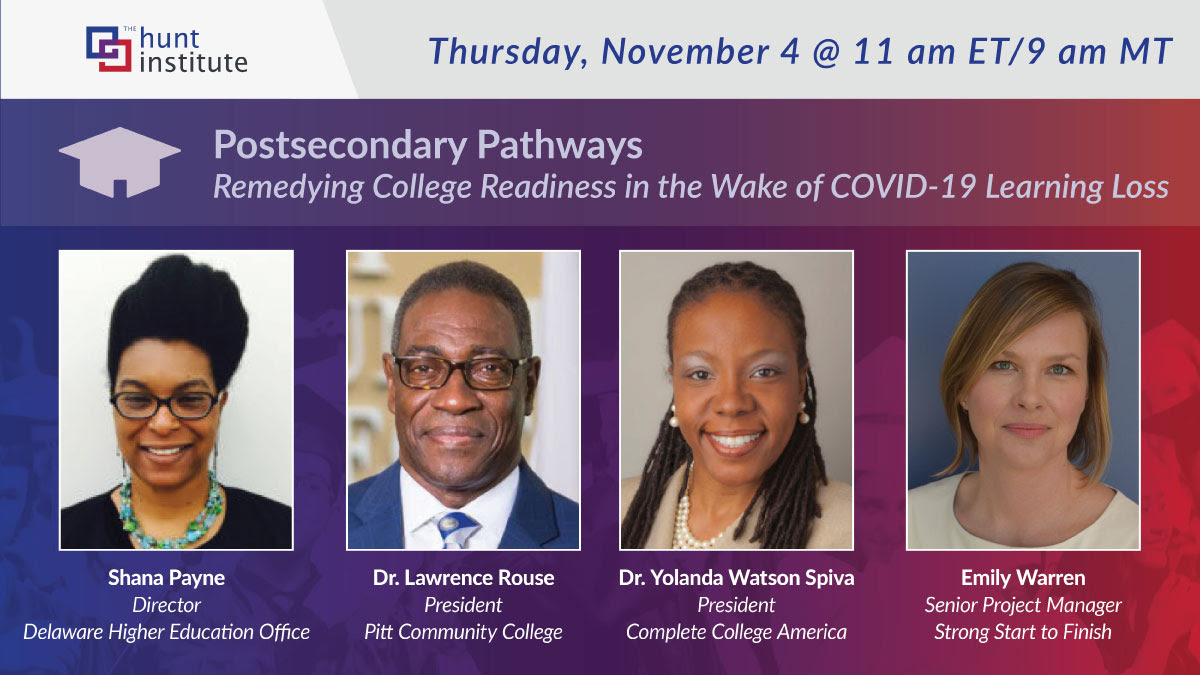
|
|
“The COVID-19 pandemic impacted education in a multitude of ways,” said Winn Decker, host of the Nov. 4 Hunt Institute’s virtual panel, “Postsecondary Pathways: Remedying College Readiness in the Wake of COVID-19 Learning Loss.”
As COVID-19 swept the nation, the ubiquitous uncertainty made many people question big life choices, especially the decision to attend college. For high school seniors fatigued by online learning, opting to pursue college post-graduation when the end of the pandemic was out of sight may not have seemed worthwhile. For others, the financial burden of the pandemic excluded the possibility of college, though it may have otherwise been the path they would have chosen.
All of these challenges faced by students during COVID-19 were discussed by panelists Shana Payne, director of Delaware’s Higher Education Office; Dr. Lawrence Rouse, president of Pitt Community College; Dr. Yolanda Watson Spiva, president of Complete College America; and Emily Warren, senior project manager at Strong Start to Finish. Panelists also discussed an array of institutional remedies to ease the transition of high school seniors into college.
The road from high school to college was undoubtedly complicated by COVID-19.
“These students didn’t have the opportunity to visit campuses and have the opportunity to have those conversations with admissions officers. And so they were, you know, lacking confidence about their decision and their next steps,” said Payne.
This sentiment was shared by all of the panelists and was highlighted as a leading explanation as to why college enrollment for high school seniors has declined during the pandemic.
However, declines in enrollment rates were also attributed to financial complications.
“So lack of financial aid and I think that impacted also the enrollments because students, if they didn’t apply for financial aid, many cannot pay to attend college,” said Rouse.
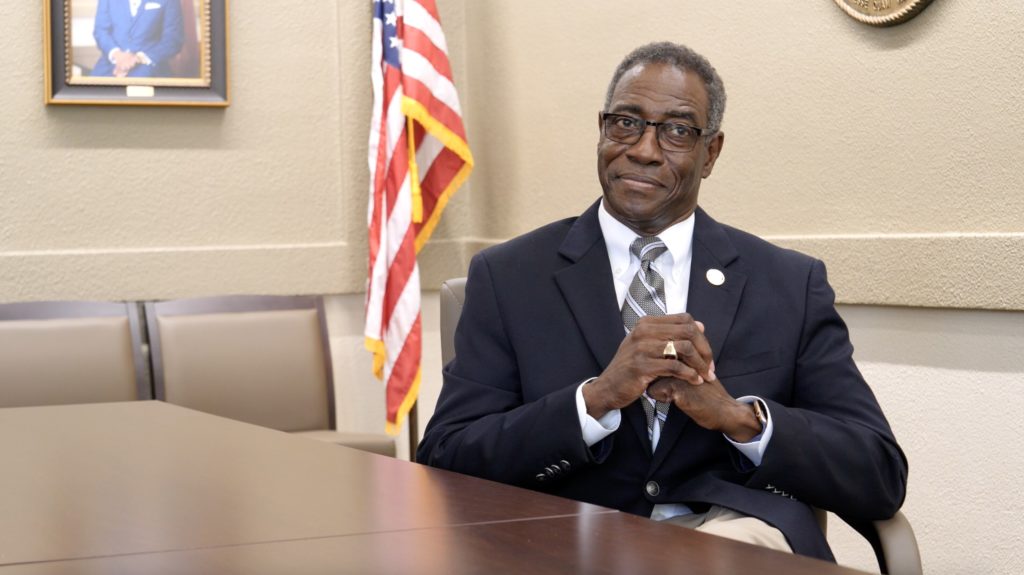
During COVID-19, Delaware saw its FAFSA completion rate decrease from 52% to 47%. North Carolina experienced a similar phenomenon. Rouse explained that in 2021 there were $10 million in unclaimed state grant funds provided by the Longleaf Commitment, the governor’s initiative that offers full tuition and fees for eligible students enrolling in one of the state’s 58 community colleges.
For a variety of reasons, students were not seizing the financial opportunities available to them, and in the wake of COVID-19, students were deterred by the prospect of accepting loans and racking up debt to attend college.
“We think that it’s really critical because we know that the debt impacts students of color and first generation college-going students and students from low income households the most,” said Payne.
For those incoming freshmen who decided to attend college in the midst of the pandemic, it soon became clear that virtual learning had not adequately prepared them for the rigor of a college education.
“We found that because of the learning loss, many of our freshmen students were not ready for the math courses that they would face,” said Rouse.
This lack of college readiness caused an increase in failing grades or withdrawals from entry-level courses, particularly math and English. Instead of trapping students in developmental education, which has been shown to decrease rates of college completion, Rouse relied on North Carolina’s Reinforced Instruction for Student Excellence model, or RISE, which allows students to take these integral college entry courses while still having the opportunity to take courses within their major.
RISE is a corequisite model that prioritizes getting students enrolled in “gateway” math and English courses as soon as possible. Previously, if a student was deemed unprepared to take college-level classes, they were enrolled in prerequisite developmental math and English courses. When North Carolina community colleges made the switch to RISE, they got rid of these and created corequisite and transition courses instead.
Warren reiterated the importance of corequisite remediation models like RISE in facilitating the success of college freshmen.
“Unfortunately, we know that [the SAT and ACT] are not good predictors of student success. So for instance, using an alternative like a multiple measures approach, which takes into consideration you know, high school grades, students attitudes, surveys, employment histories, interviews, etc, helps place students directly into gateway courses,” said Warren.
In April 2021, the North Carolina Association of Community College Presidents voted to discontinue the systemwide implementation of RISE. Now, each college can decide how they will place students and deliver remedial education courses. Some community colleges in North Carolina still use all or some components of RISE.
To end the discussion, Spiva shifted to discussing the importance of educational institutions being student ready.
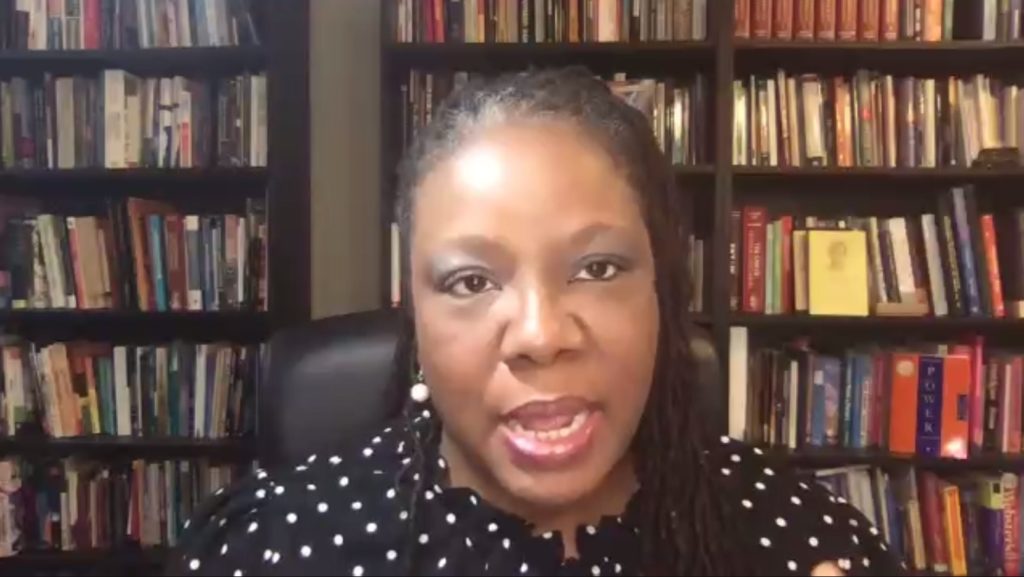
“We’ve talked a lot about students being college ready. We also want to make sure that any institution that a student endeavors to obtain a degree or credential from is also ready for them and they have all of the requisite support and resources in order to help that student to be successful,” Spiva said.
She explained that college institutions should respond to the lack of college readiness through reforms catered to the experiences and needs of students. Warren also emphasized the importance of the student perspective.
“We’re moving beyond merely focusing on course content and thinking about students in a more asset-based perspective that supports student learning,” she said.
It is evident that the effects of COVID-19 have been consequential to students’ postsecondary pathways, which is why these panelists are committed to advocating for institutional remedies that put these very students at the center of the conversation.
Recommended reading
